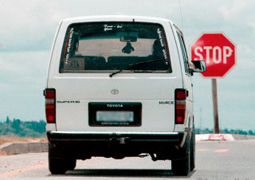
Members of the National Assembly have raised concerns about what they called “skewed allocation of subsidies between the various modes of public transport”, which they said unfairly excluded the country’s taxi industry.
During a debate of the Budget Vote of the Department of Transport, the Chairperson of the Portfolio Committee on Transport, Ms Dikeledi Magadzi, argued that it was incorrect that government only subsidised Gautrain, Metrorail and the bus industry, excluding the taxi sector, which is used by the majority of South Africans.
“We want to put it up to the department to speed up the subsidisation of taxis, as they ferry 65 per cent of the commuting passengers on a daily basis,” she said.
Ms Magadzi also questioned the implementation of the Bus Rapid Transit (BRT) policy, which she said differed from one municipality to another. “With this approach, the objective of this policy is defeated. It cannot be correct to remove taxis when this policy is implemented, as the policy indicates that different modes of public transport will complement each other,” Ms Magadzi argued.
In advancing regional modern infrastructure networks and access to public transport, an integrated planning of basic amenities and spatial planning was crucial, she said. “The NDP (National Development Plan) vision 2030 focuses on the following key principles with regard to infrastructure: improving access to socio-economic opportunities; advancing development; improving the movement of goods and people as well as promoting regional integration,” the Chairperson said.
Mr Thilivhali Muluadzi of the Economic Freedom Fighters said between 20 and 30 per cent of households own a car, leaving almost 80 per cent of the population depending on public transport. Despite this, he said, public transport is in ruins and the government has done little in the way of visionary, long-term thinking to resolve the transport crisis.
“Bus transport is currently the biggest beneficiary of government subsidies with 48 per cent, followed by Metrorail, Gautrain and the BRT. This benefits mainly transport used by middle-class South Africans and there is no measurement of how these subsidies benefit users. Taxis, which are used by the majority of South Africans for their daily transport, do not receive any subsidies,” said Mr Muluadzi.
Inkatha Freedom Party Member of Parliament Inkosi Russel Cebekhulu also supported to call for subsiding the taxi industry. “Why is it that commuter subsidies are not given to commuters using taxis as a means of transport to and from their place of employment? Why is it that when 75 per cent of our labour force make use of such transport, government does not assist through subsidies,” Inkosi Cebekhulu said.
Mr Maliyakhe Shelembe of the National Freedom Party said: “We believe that the taxi industry should long ago have been taken into consideration for proactive intervention and subsidies, not only because of the high number of passengers are conveyed in this sector, but also to alleviate the often deadly competition for access to routes, which often flares up as so-called ‘taxi wars’.”
The Democratic Alliance’s Mr Manuel De Freitas told the NA that the e-tolling issue in Gauteng has caused much damage to the image of the South African Roads Agency Limited (Sanral). “The e-tolls issue has turned an otherwise efficient and effective SOE (state-owned enterprise) into one that is suffering economically. Sanral needs to start facing the issue head-on and listen to the people of Gauteng. The entire e-tolls scheme needs to either be scrapped or funded differently, so that the financial burden is not left with the already overstretch taxpayer,” Mr De Freitas said.
Tabling the Department’s Budget Vote for debate in the mini-plenary, Transport Minister Mr Joe Maswanganyi said over the medium term, the department will focus on improving mobility and access to social and economic activities by maintaining the provincial and national road networks, upgrading and maintaining rail infrastructure, and improving public transport for rail and road commuters.
He said these activities will contribute to the realisation of outcome six of the government’s 2014-2019 medium-term strategic framework: the maintaining an efficient, competitive and responsive economic infrastructure network.
“Our department’s total expenditure over the medium term will mainly be driven by transfers to our public entities, provinces and municipalities for infrastructure spending, operations and maintenance. These transfers constitute 98.1 per cent of the department’s budget over the medium term.
“The department’s budget is expected to increase at an average annual rate of 6% per cent in the period ahead, from R59 billion in 2017/18 to R68.6 billion in 2019/20,” said the Minister.
Sakhile Mokoean
24 May 2017

